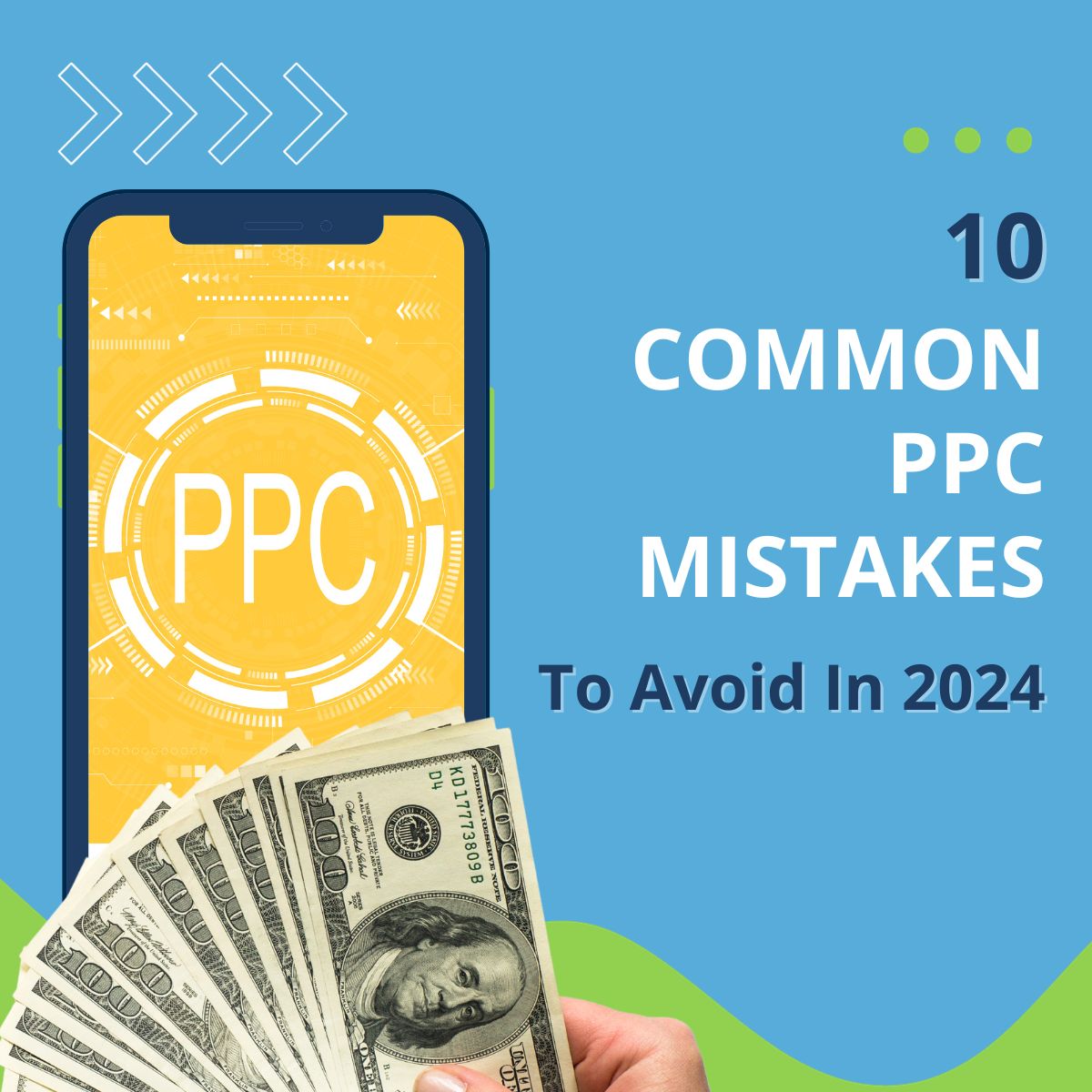
Are you planning to implement a PPC (pay-per-click) strategy for your business in 2023? If so, you need to be aware of the common errors that marketers commit when using this type of advertising.
PPC is a powerful tool and can help increase visibility, traffic, and conversions if used correctly. However, with ever-evolving rules and tactics across search engines and social media platforms, it’s important to stay up-to-date with the latest trends as well as avoid some of the most frequent mistakes that could prevent you from attaining success.
Here are ten major missteps you should be aware of when creating your PPC campaign.
1. Lack of Specific Campaign Goals
One of the most common mistakes that marketers make when creating a PPC campaign is failing to set specific goals. Without clear objectives, it’s impossible to measure success or determine whether your efforts are paying off. Before launching your PPC campaign, take the time to define what you want to achieve and how you will measure progress toward those goals.
2. Not Testing and Trackings Metrics
Another mistake to avoid when creating a PPC campaign is not testing and tracking metrics. It’s important to track the performance of your ads in order to identify which ones are performing well and which ones need improvement. You should also test different ad copy, images, and targeting options in order to optimize your campaigns for maximum success. Without testing and tracking metrics, you won’t be able to make informed decisions about your campaigns.
3. Setting It & Forgetting It
One of the worst things you can do when running a PPC campaign is to set it and forget it. While it may be tempting to set up your campaigns and let them run on autopilot, this approach will not yield the best results. You should regularly monitor your campaigns and adjust them as needed in order to maximize performance. This includes continually testing different ad copy, images, and targeting options as well as adjusting bids and budgets.
4. Not Using Optimized Landing Pages
Your landing page should be designed with the user experience in mind and should be tailored to the specific ad that the user clicked on. It should also contain relevant information about your product or service as well as a clear call to action. Without an optimized landing page, you won’t be able to convert as many visitors into customers.
5. Trying to do Too Much
A common problem that new PPC-ers encounter is that they will try to bid on everything and anything. This is a mistake because it can lead to wasted ad spend and poor performance. You should focus on the keywords that are most relevant to your business and target them specifically. Your campaign budget will go a lot further if you only focus on keyword terms that have a purchase intent, rather than the terms that focus on researching your product or service.
6. Not Using Exact Match Keywords
When creating a PPC campaign, it’s important to include exact match keywords in order to ensure that your ads are being shown to the most relevant audiences. Exact match keywords allow you to target users who are searching for specific terms and phrases related to your business. Without using exact match keywords, you could be wasting ad spend on irrelevant searches.
7. Not Using Negative Keywords
Negative keywords are an important part of any PPC campaign, yet many marketers fail to take advantage of them. Negative keywords allow you to exclude certain words and phrases from your campaigns so that your ads won’t be shown to people who are searching for those terms. This helps ensure that your ads are only being shown to the most relevant audiences and can help you save money on wasted ad spend.
8. Making Technical Mistakes
Making technical mistakes is another common mistake to avoid when running a PPC campaign. Technical mistakes can include anything from incorrect ad targeting to incorrect keyword bidding. It’s important to double-check all of your settings and make sure that everything is set up correctly in order to ensure that your ads are being shown to the right audiences and that you’re not wasting money on irrelevant searches.
9. Poor Quality Scores
Quality scores are used to determine how relevant and useful your ads are to users. If your quality score is low, it can lead to higher costs per click and lower ad positions. Writing engaging ads and developing relevant landing pages connected to specific keywords will help you improve your quality score.
10. Bad Ad Copy
Poorly written ads can lead to low click-through rates and wasted ad spend. When writing your ad copy, it’s important to focus on creating compelling headlines and descriptions that grab the user’s attention and clearly explain what you are offering. You should also use language that resonates with your target audience and make sure that your ad copy is relevant to the keywords you are targeting.
Need help with your HVAC company’s PPC strategy? Book a free consultation. Our HVAC digital marketing specialists can help optimize your advertising budget and help your company achieve maximum growth.






